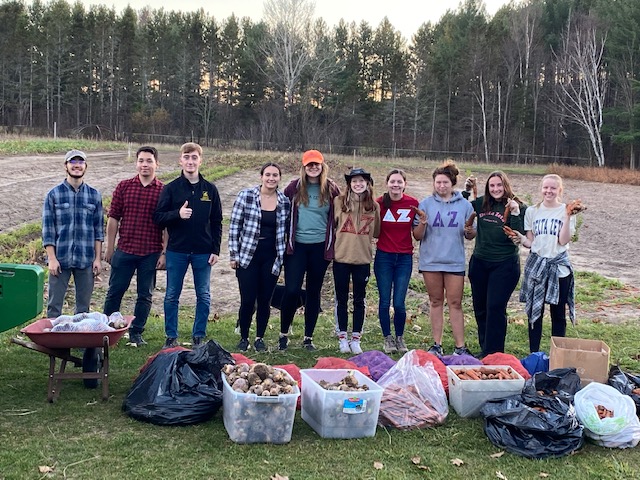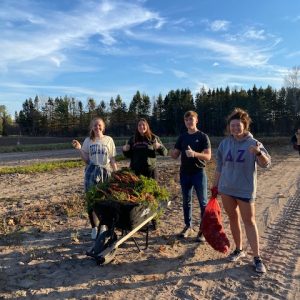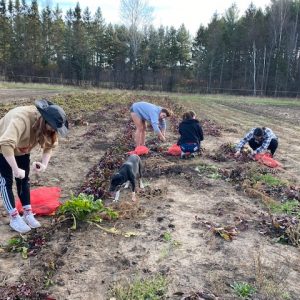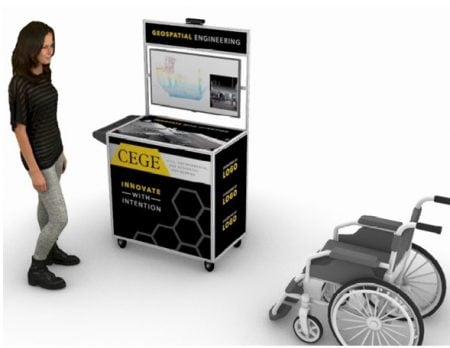As part of 2022 Make A Difference Day, ten enthusiastic Michigan Tech students from Delta Zeta Sorority and Beta Sigma Theta Fraternity helped dig more than 400 pounds of carrots, rutabagas, and beets from a local farm for distribution to needy families through the Western UP Food Bank and Salvation Army in Houghton and Hancock.
Students came from the following departments:
Sam Griswold and Dominic Sobcinski, Electrical & Computer Engineering;*Corbin Sullivan, Civil Engineering; Samantha Ludwick, Chemistry; Emma Quinn, Materials Science; Hunter Malinowski Computer Science and Psychology; Emily Kughn, College of Business; Lauren Kiss, Biomedical Engineering; Emaly Jadin and Zoe Kumm, Chemical Engineering. Samantha Ludwick, VP for Philanthropy with Delta Zeta National Sorority, was enthusiastic about their experience. “We had a blast harvesting veggies to be donated. We’d be happy to
help out again!”
Corbin Sullivan, a 3rd year Civil Engineering student, observed, “I participated in the Fall harvest yesterday because I wanted to learn more about agriculture and what it takes to grow one’s own food. As a Civil Engineering student, it is our job to design a world that serves humanity. Sometimes we forget what it took our ancestors to get to where we are now. I think that learning about the natural world around us is a must so that we know how to preserve it– not just for the future of the human species but for all species– and to prevent or mitigate any damage we might cause in the world.”
The Western UP Food Bank serves more than 400 families and 500 seniors in Houghton, Baraga, and Keweenaw counties, and delivers food to 40 organizations in six counties. They are the only food bank in operation in the Upper Peninsula of Michigan. They rely nearly 100% on local donations from businesses and individuals. To support their work, send your contributions to: P.O. Box 420, Hancock, MI 49830.
This community service event was organized by Joan Chadde, with the Michigan Tech Center
for Science & Environmental Outreach.
Way to go students!



